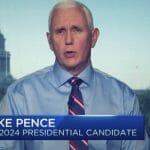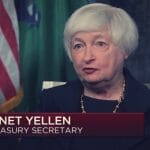Steven Romick, First Pacific Advisors, reveals his two favorite stock picks. He also says why he is not bullish on bonds. “You’re not getting paid to play if you are buying high-yield bonds,” he adds.
Video and computer generated transcript below:
H/T http://www.valueinvestingworld.com
this week we are featuring a selection of the best mutual fund managers and their top fikz. today the five-star rated fpa crescent fund up 19% over the last year and posted annualized returns exceeding 9% over the last decade. joining us from is steve romick, portfolio manager of the fda crescent fund and manager of first pacific advisers. thank you for joining us. thank you. impressive returns that you have not only over the last year but particularly over the last decade to be able to wrack up returns like that. you say the real secret to investing is trying to find investments that are more risk-free, not necessarily trying to beat the market. you want to explain that to us? well, our goal is to provide equity rates of return with less risk than the market. our goal is not to seek that which is risk free, but we do believe that we can accomplish delivering those types of returns by kind of investing across the capital structure so what we do might be different than the average mutual fund, we’re not just bonds, not just stocks. we diversify across a whole different basket of asset classes. equity is the largest component. we do a lot of high yield bonds, we own mortgage home loans and farmlands and a smattering of relatively odd things by comparison. your bond position in the chart we looked at was only 3.7%. you think now is not the time for bond investing. corporate bond investment certainly isn’t as far as we’re concerned. the last couple of years $80 billion some odd of triple c and non-rated debt issued which is larger than in 2006 and ’07. spreads don’t look unusually at the same time that you have the starting yield which is quite low. so you’re not getting paid to play if you’re buying what they call high yield bonds that aren’t high. let’s talk about some of your favorite picks. you like renault and i guess that’s unusual because people think europe and they think about all the distress that’s happening there. what we generally tend to do is look for dislocation of markets. we’re looking for that which is out of favor and a lot is out of favor in the european automotive business. in the case of renault they own stakes in nissan, 44% stake there, and 7% stake in volvo and if as well as a less than 2% stake in daimler. you add up the stake of the companies which are all public they exceed the value of renault so you can actually bg lone renault as we are and we are short volvo and nissan not because we have a negative view as to volvo and nissan’s prospects but because volume sew and nissan’s value exceeds renault. the market is paying us 2.5 to 3 billion euros for so. we had a conversation with the doctor who runs mt. sinai and he was talking about promising things coming down the road. one of the things you like is omnicare and the institutional pharmacy business. what do you see happening there? this is not about something new and exciting and promising coming down the road with respect to technology that is going to drive us into invention in this business but the omnicare business is an institutional pharmacy and they deliver drugs to nursing homes amongst other places as well. nursing homes is a big part of the business and they have more than 40% share, three times the nearest competitor and this is a business that is going to benefit from certainly the aging of america but as important in that, as that is the fact there’s a new management team here and this is a business that was not terrible well run in the past, this is a business that was poorly managed and now the new management team, making the appropriate investment in people, as well as technology, they are going to increase the wide and deep competitive mode they have. does it matter who wins the next election and whether or not obama care icks around for that pick? that will not affect us. we think in terms of elections and what could happen coming up, if any investment we made would be too dependent upon one party winning then we wouldn’t be making that investment. you also like farmland. could you explain your thesis there? farmland is something that you really don’t find in most mutual funds and we unfortunately couldn’t when we first were buying this own as much as we wanted to because of the liquid nature of it, but farmland is going to benefit in a few different ways. one you could look at the benefit that people think gold have and pharma will benefit in an inflationary market and with the cuies but unlike gold it doesn’t have a cost of carry. farmland, if you look around the world the population growth is 0.9% and arable acreage over 2.3. people are feeding more in developed economies and emerging economies are eating better, means more proteen in their diets. that gulf between 0.3 and 0.9 widens further still and there is continued to be decelerating productivity improvements on land, so there could be a point in time where we end up with much higher food prices even with what we see today. steven thank you for coming on and hope to see you again











